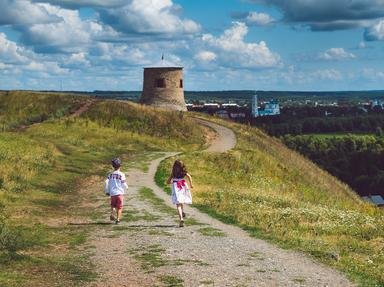Quiz Answer Key and Fun Facts
1. Silversmith, Revolutionary Messenger
2. Printer and Writer, Scientist, Minister to France
3. Surveyor, Commander in Chief of Continental Army
4. Stay Maker, Excise Officer, Writer of Pamphlets, Personal Assistant
5. Maltster, Official in Massachusetts Provincial Congress
6. Doctor, Writer, President of Massachusetts Provincial Congress
7. Lawyer, Orator, Member of House of Burgesses, Continental Congress
8. Captain of British Merchant Navy, Captain of Continental Navy
9. Farmer, Businessman, Colonel Commandant Vermont Republic Militia
10. Merchant, President of the Continental Congress
Source: Author
ponycargirl
This quiz was reviewed by FunTrivia editor
NatalieW before going online.
Any errors found in FunTrivia content are routinely corrected through our feedback system.

